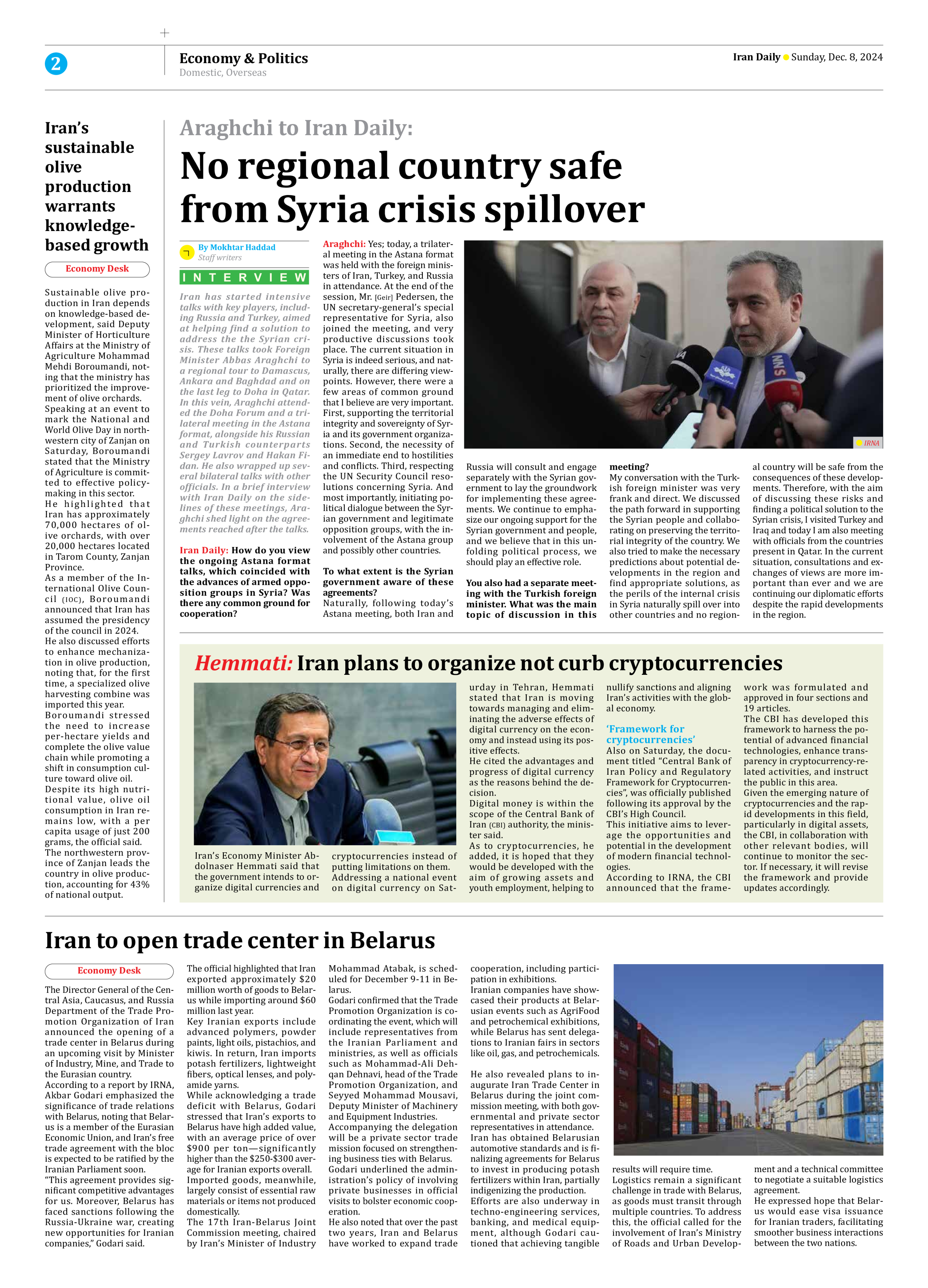
Iran’s sustainable olive production warrants knowledge-based growth
Sustainable olive production in Iran depends on knowledge-based development, said Deputy Minister of Horticulture Affairs at the Ministry of Agriculture Mohammad Mehdi Boroumandi, noting that the ministry has prioritized the improvement of olive orchards.
Speaking at an event to mark the National and World Olive Day in northwestern city of Zanjan on Saturday, Boroumandi stated that the Ministry of Agriculture is committed to effective policymaking in this sector.
He highlighted that Iran has approximately 70,000 hectares of olive orchards, with over 20,000 hectares located in Tarom County, Zanjan Province.
As a member of the International Olive Council (IOC), Boroumandi announced that Iran has assumed the presidency of the council in 2024.
He also discussed efforts to enhance mechanization in olive production, noting that, for the first time, a specialized olive harvesting combine was imported this year.
Boroumandi stressed the need to increase per-hectare yields and complete the olive value chain while promoting a shift in consumption culture toward olive oil.
Despite its high nutritional value, olive oil consumption in Iran remains low, with a per capita usage of just 200 grams, the official said.
The northwestern province of Zanjan leads the country in olive production, accounting for 43% of national output.







